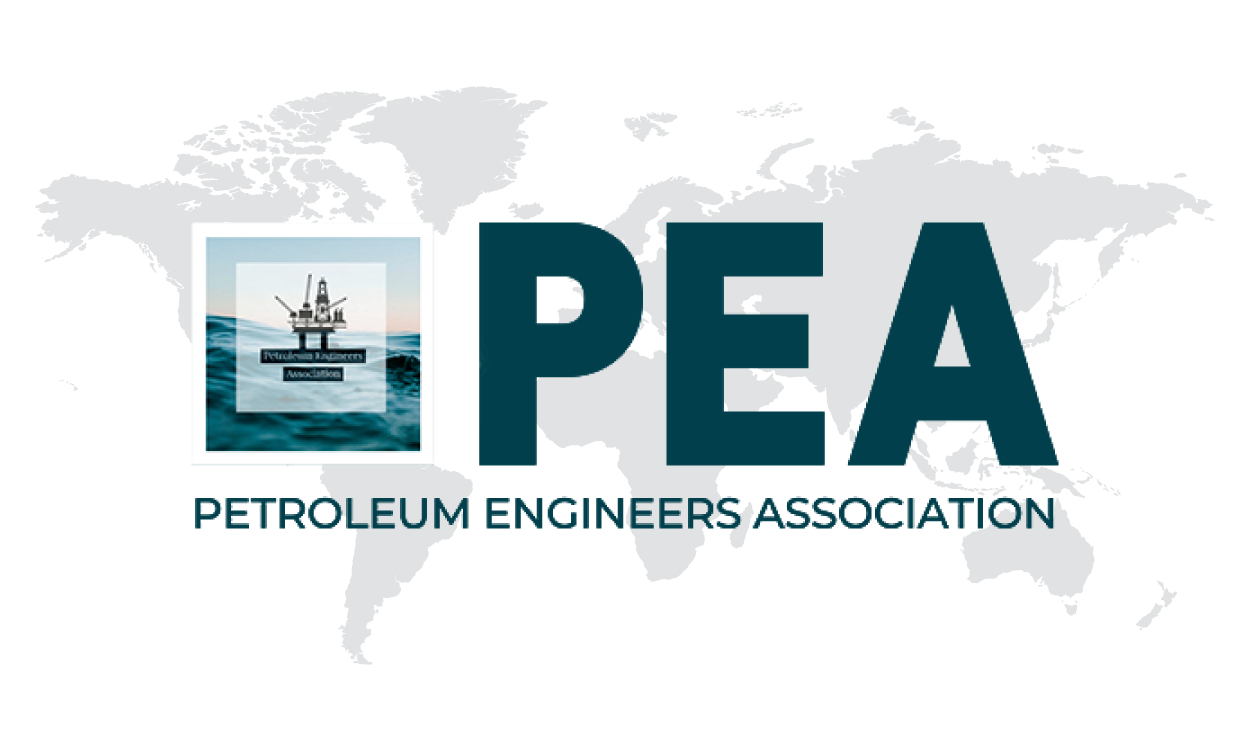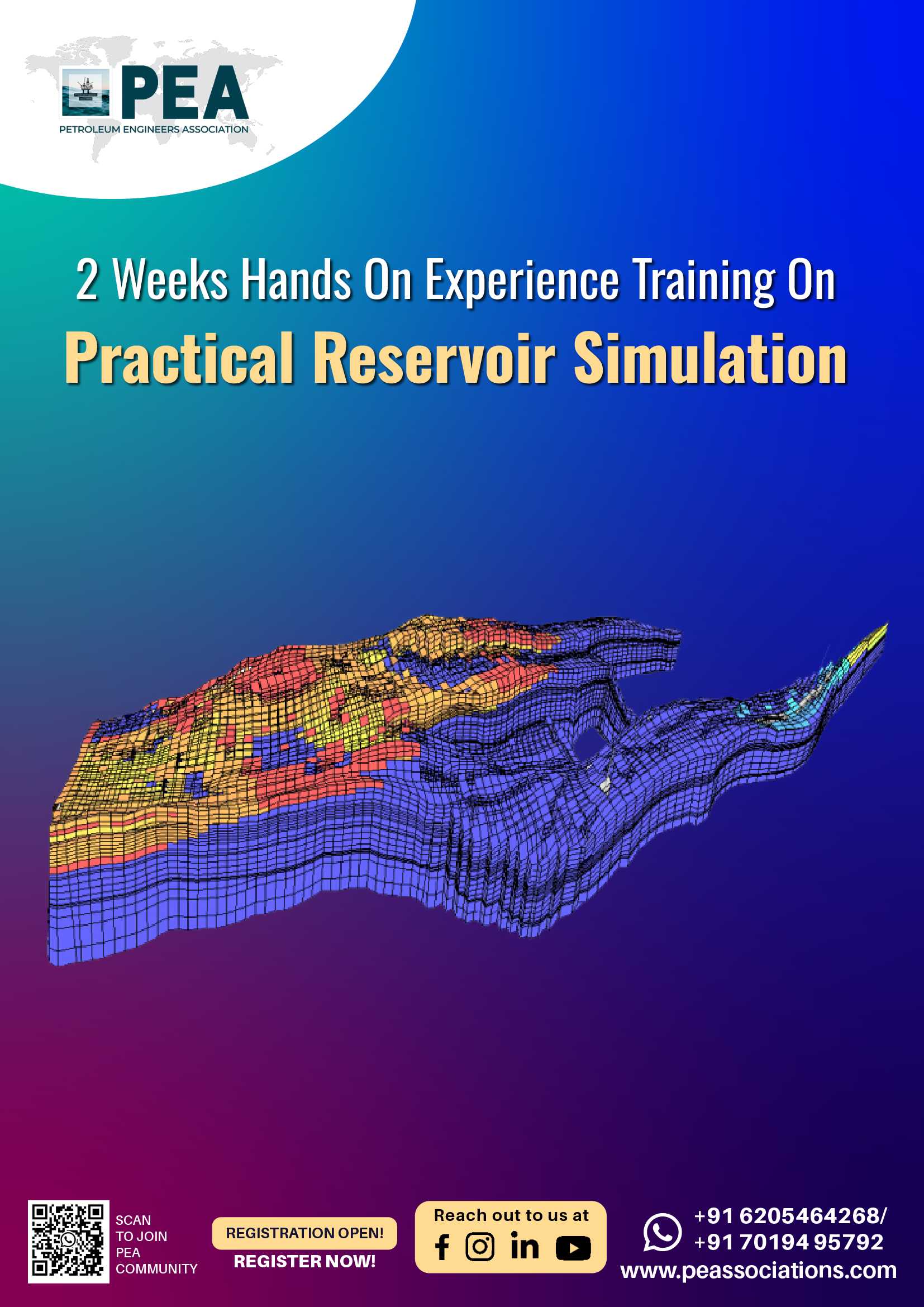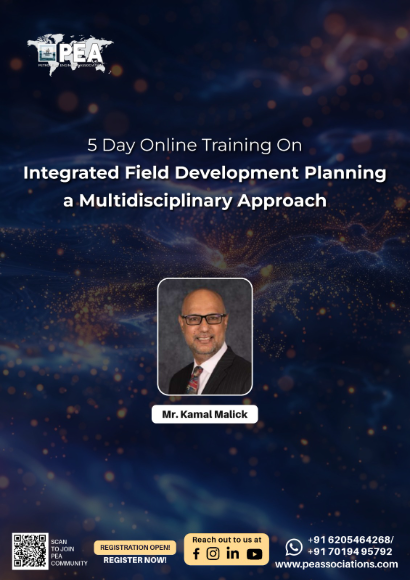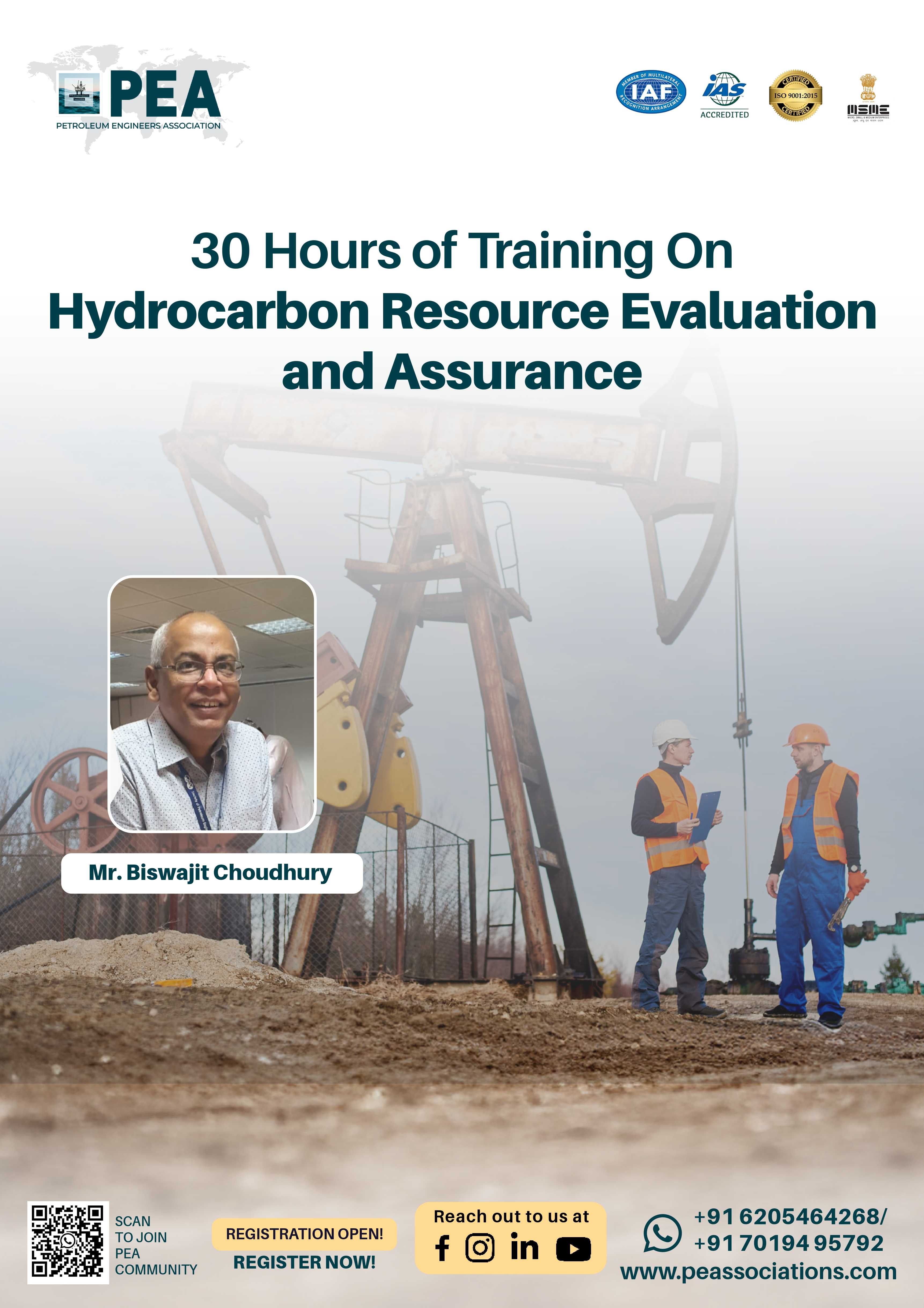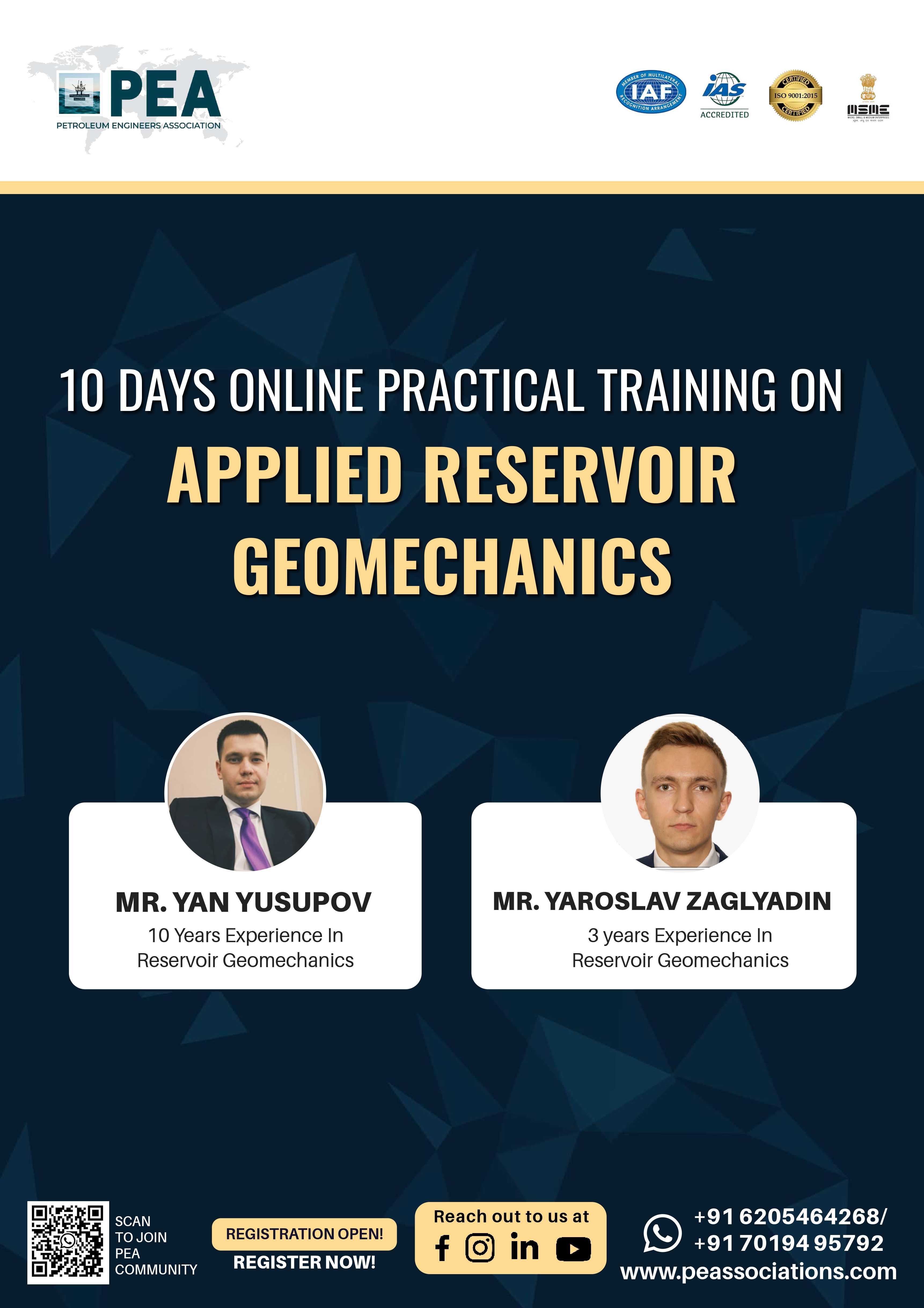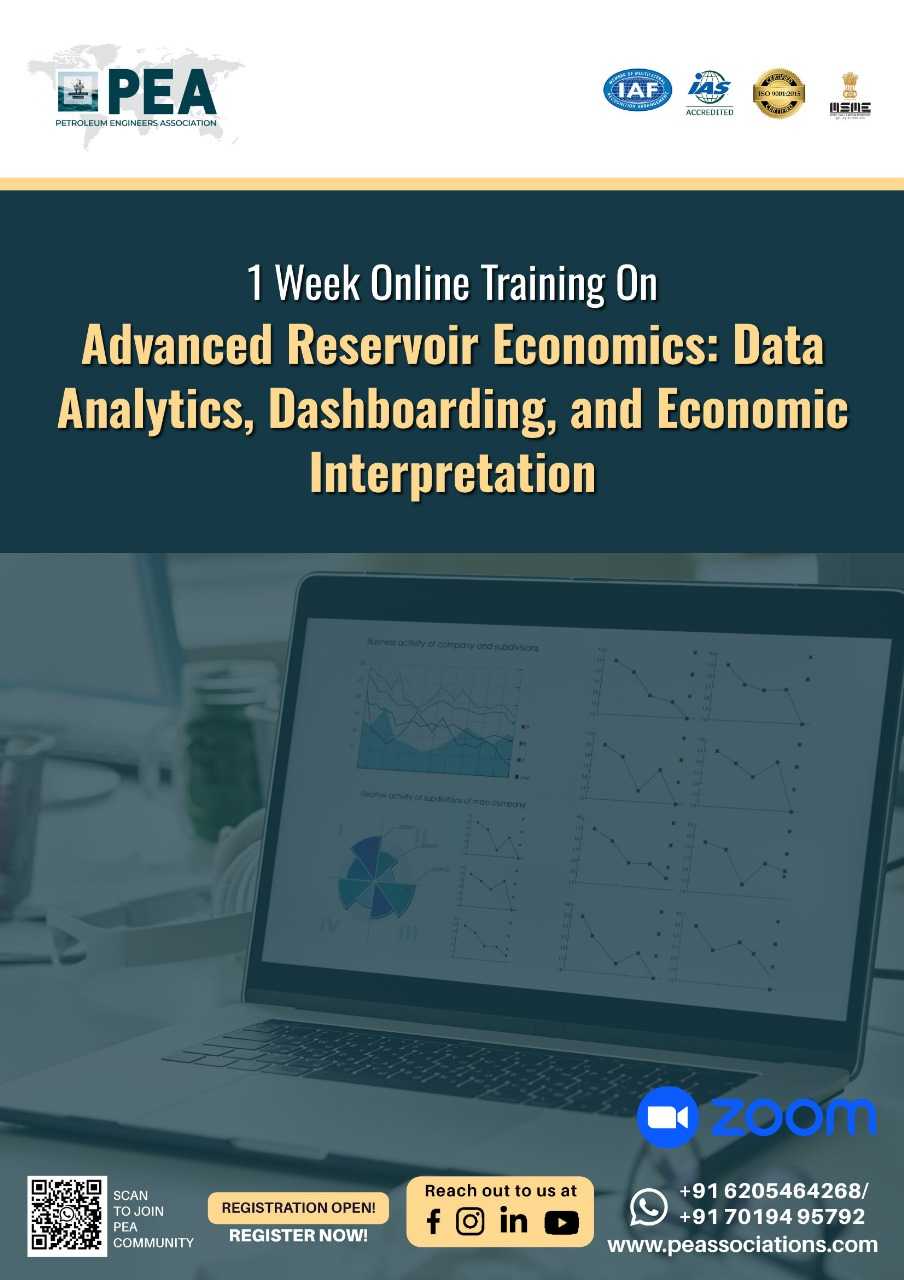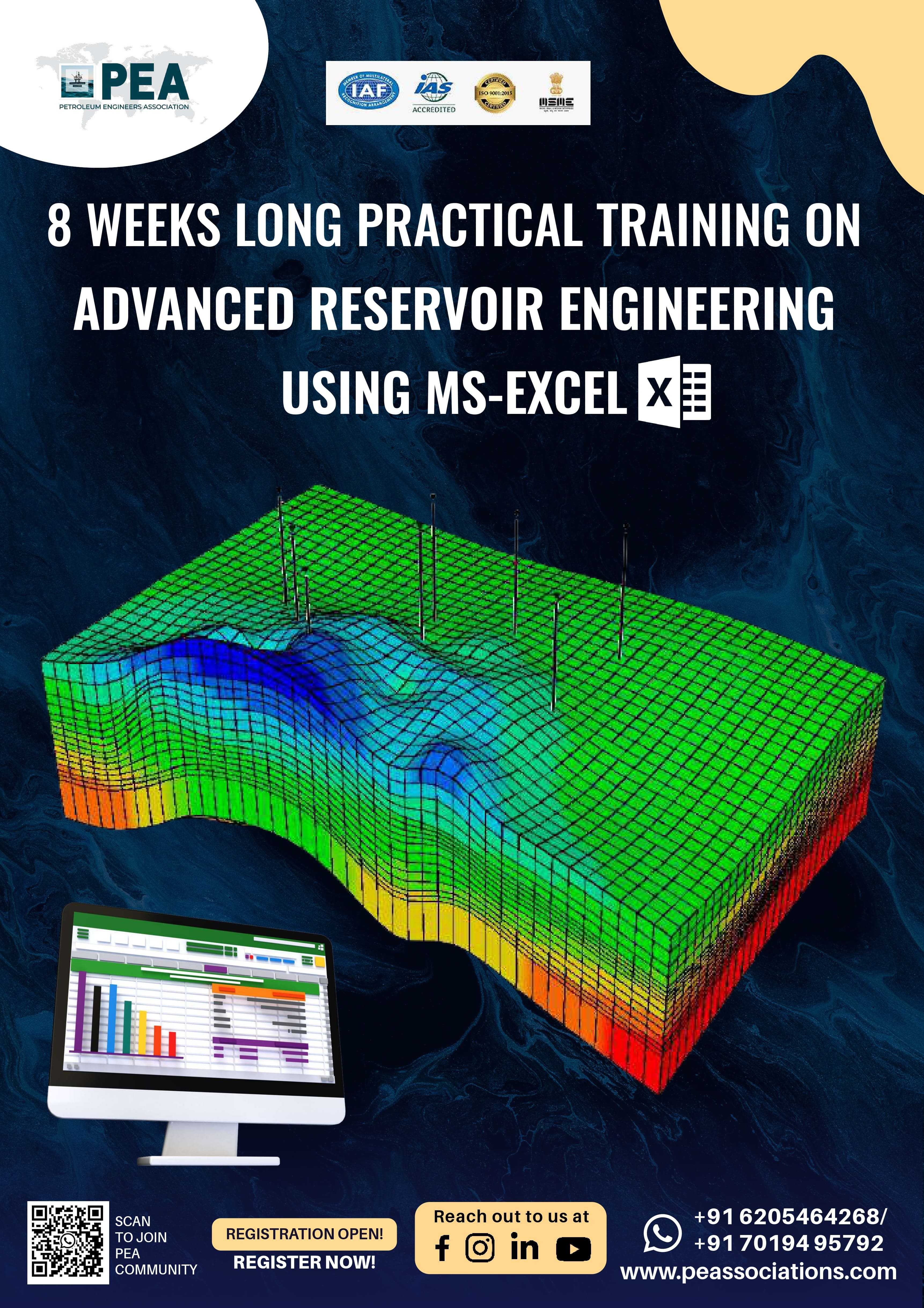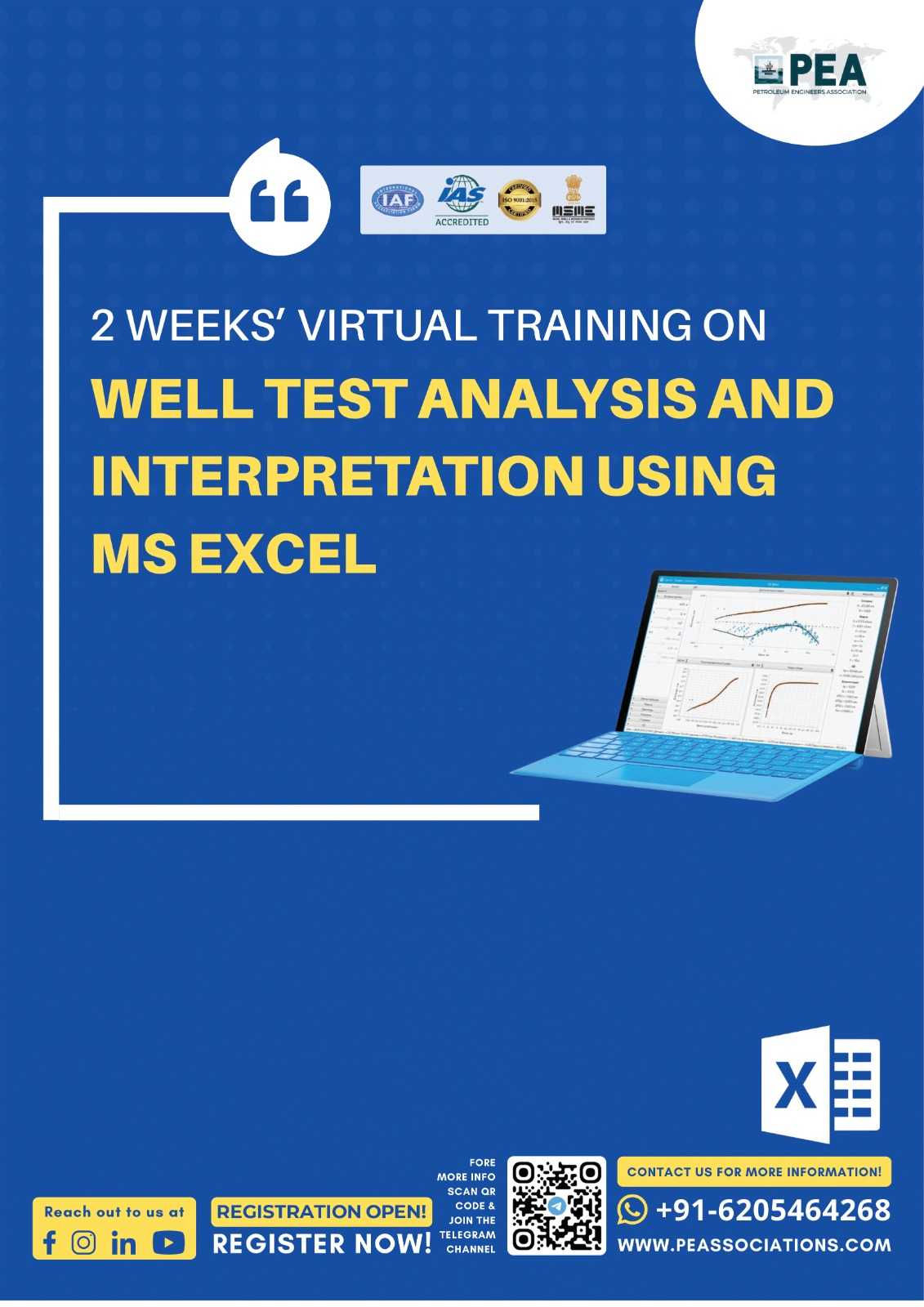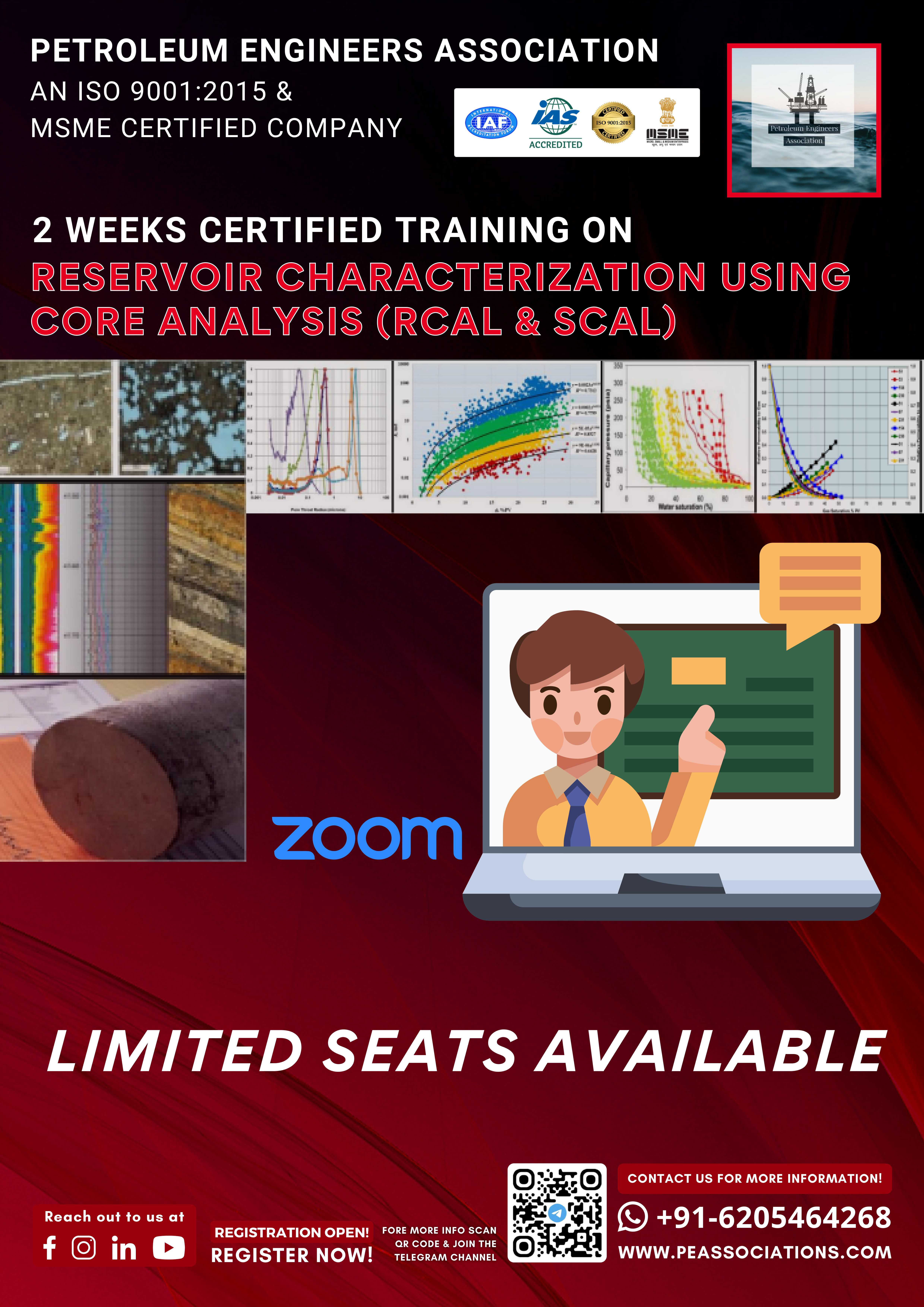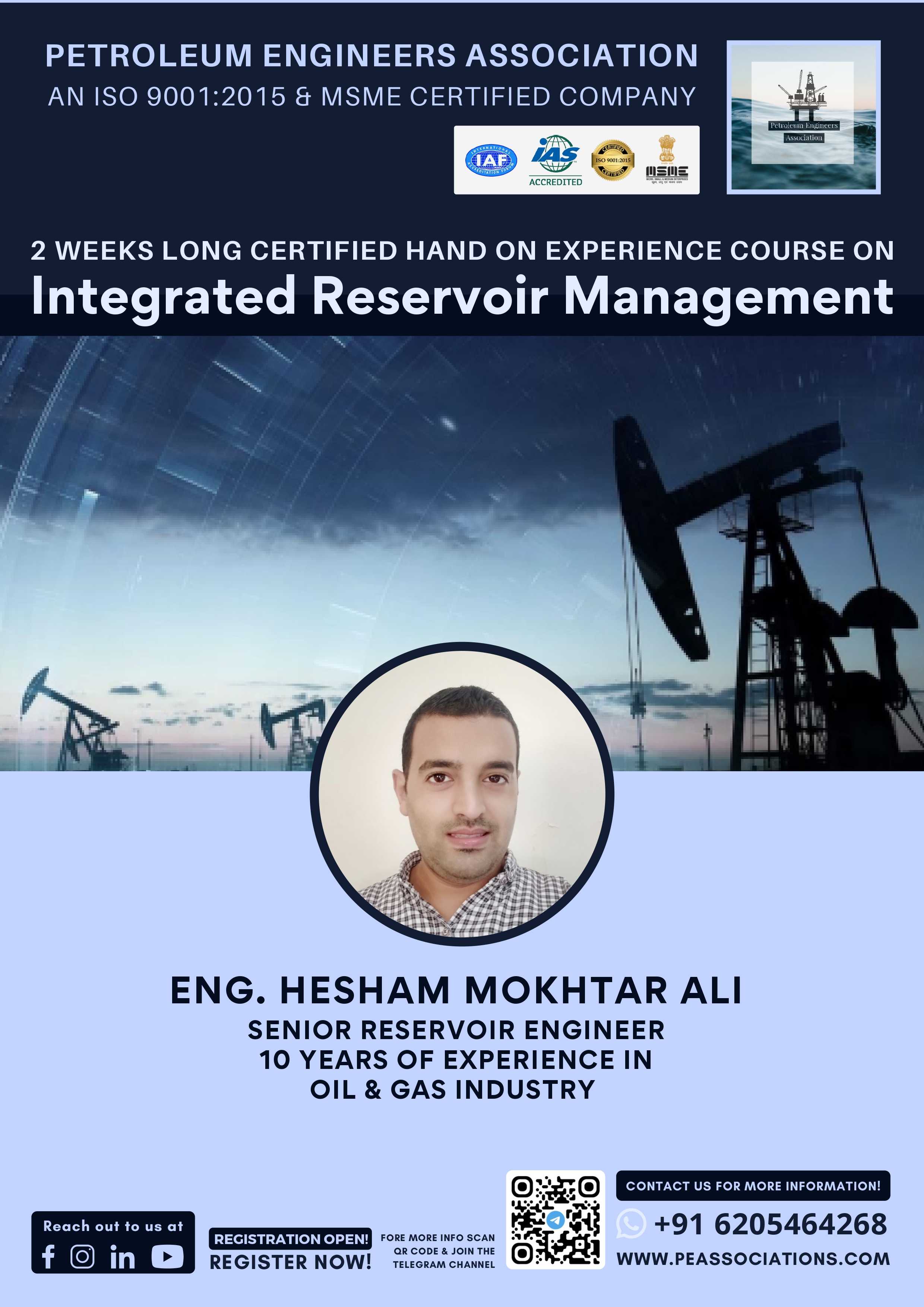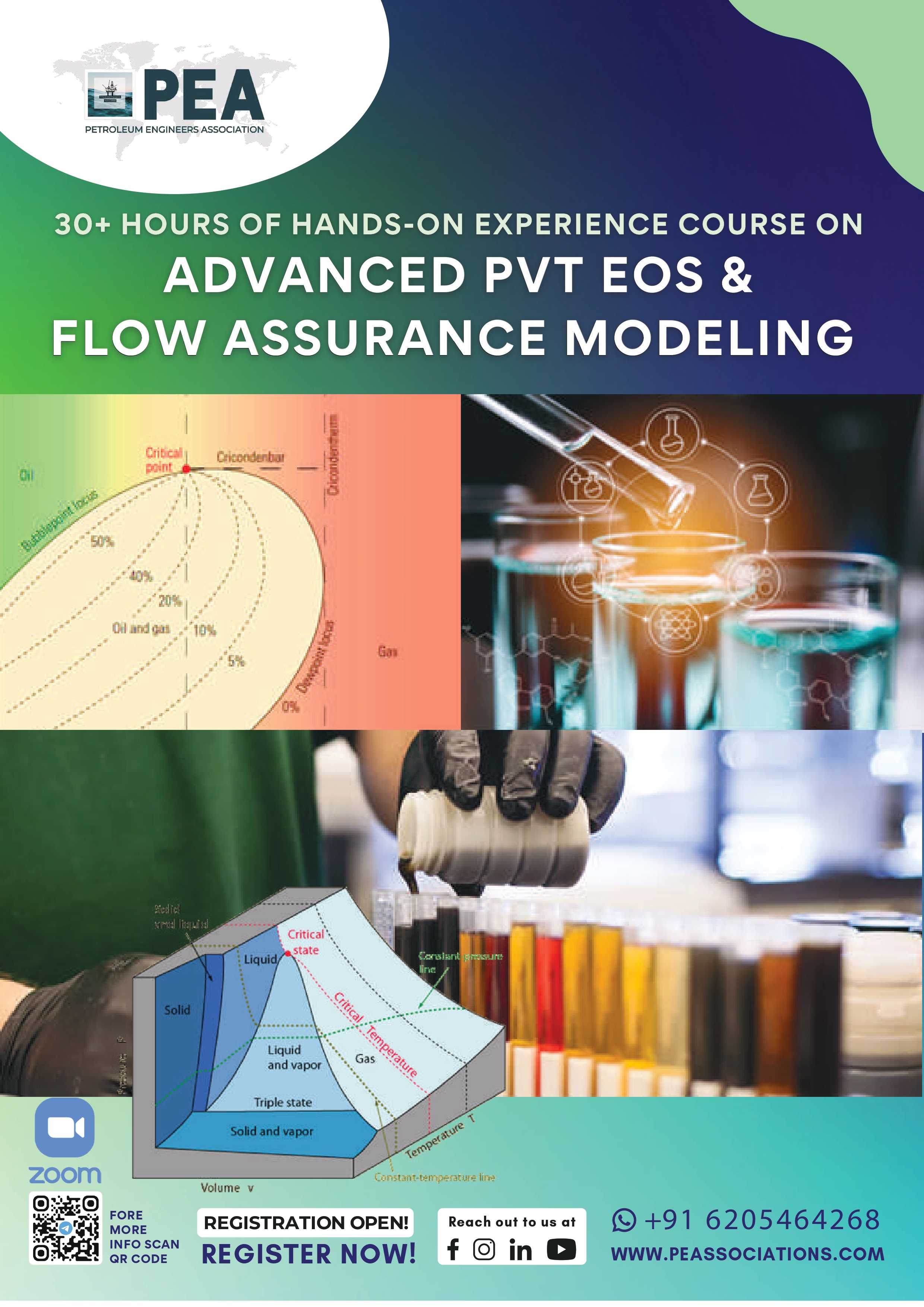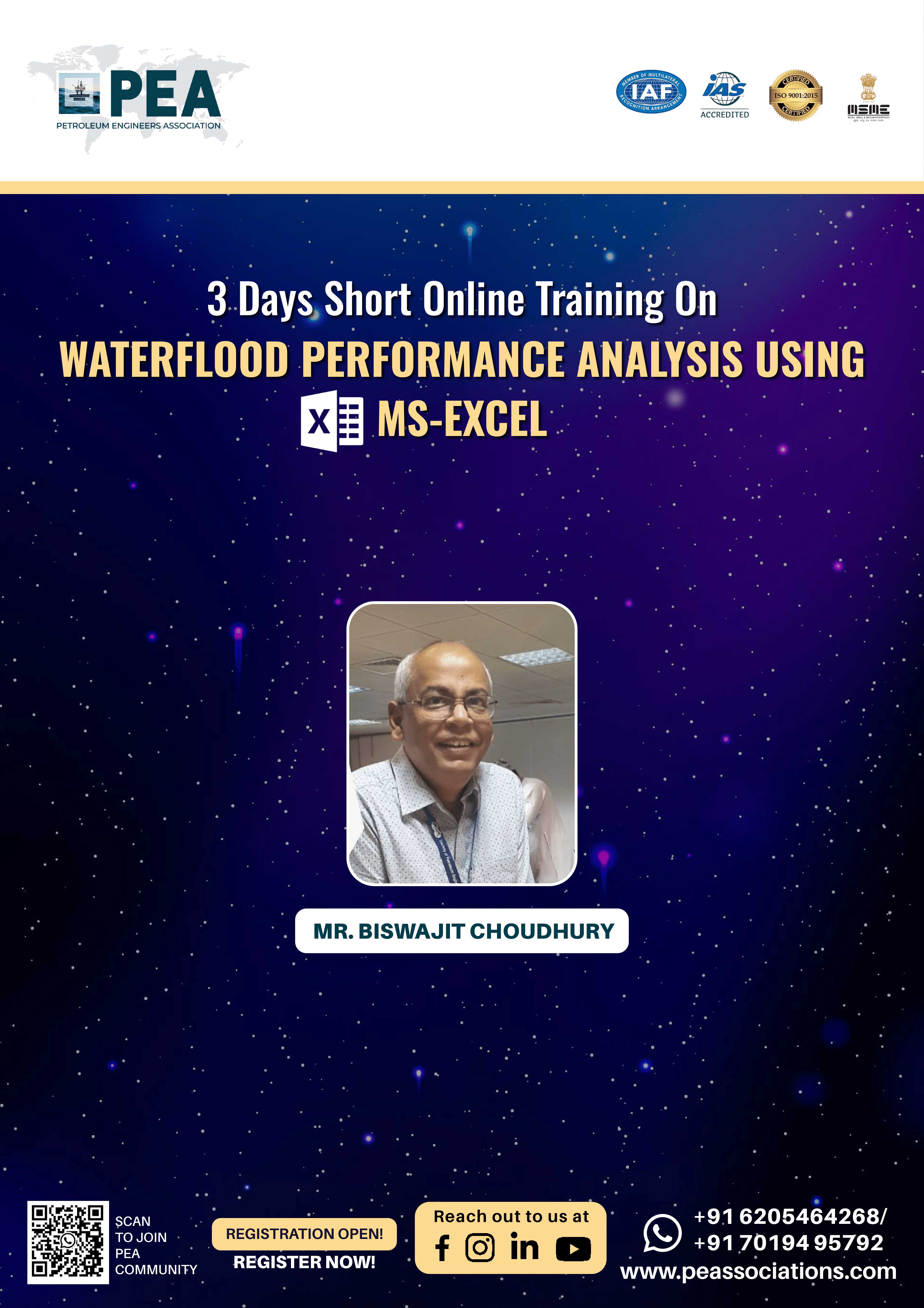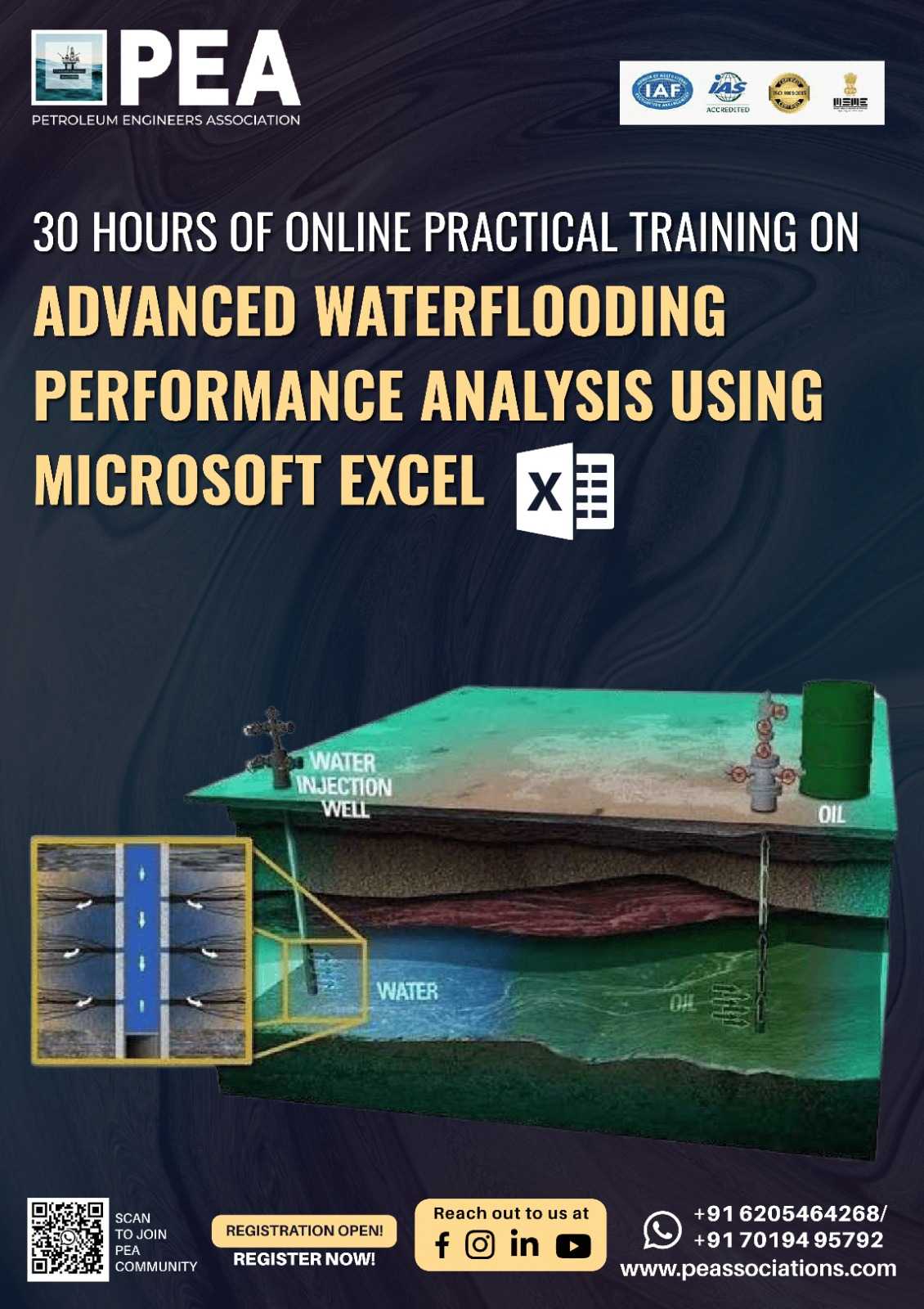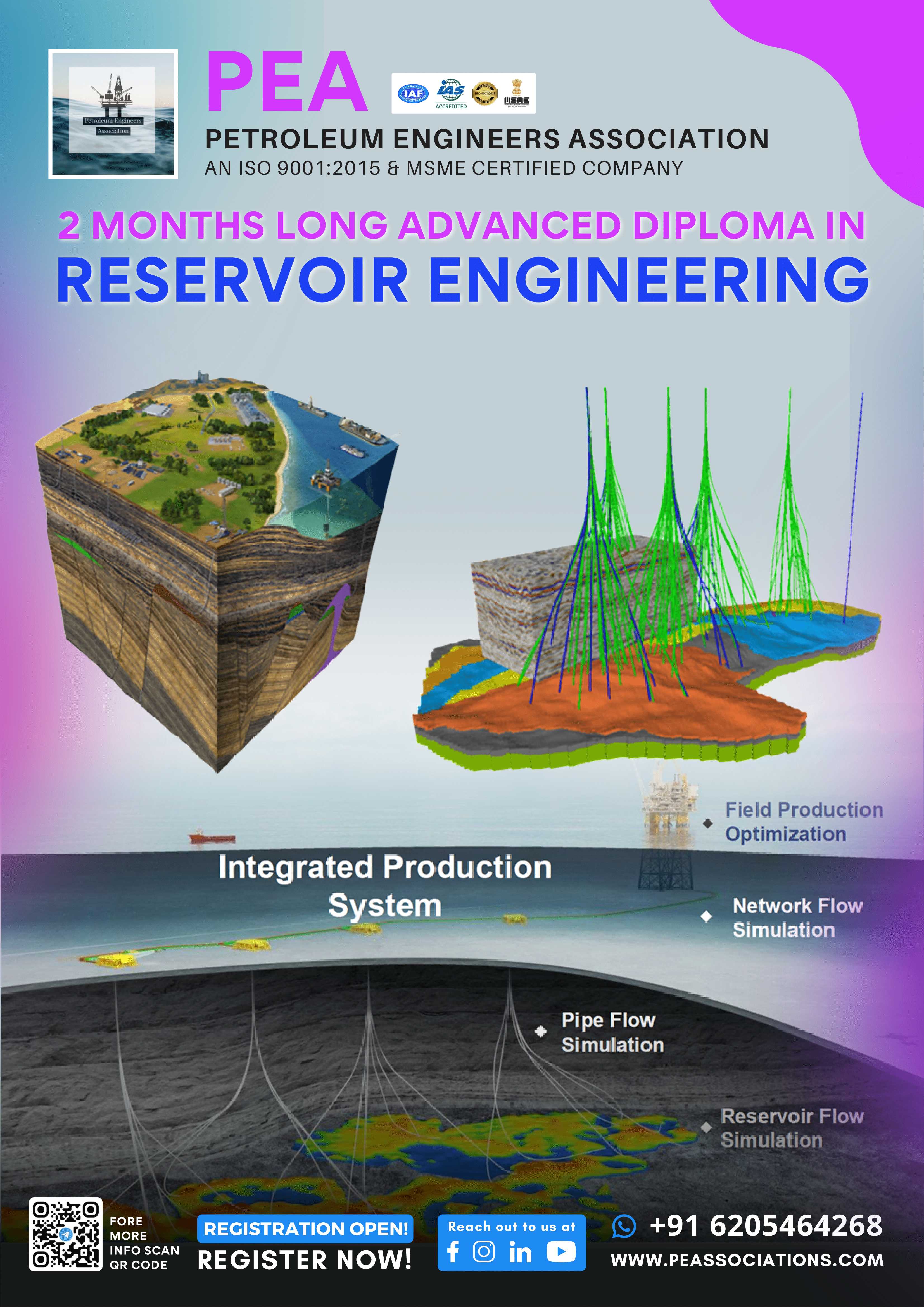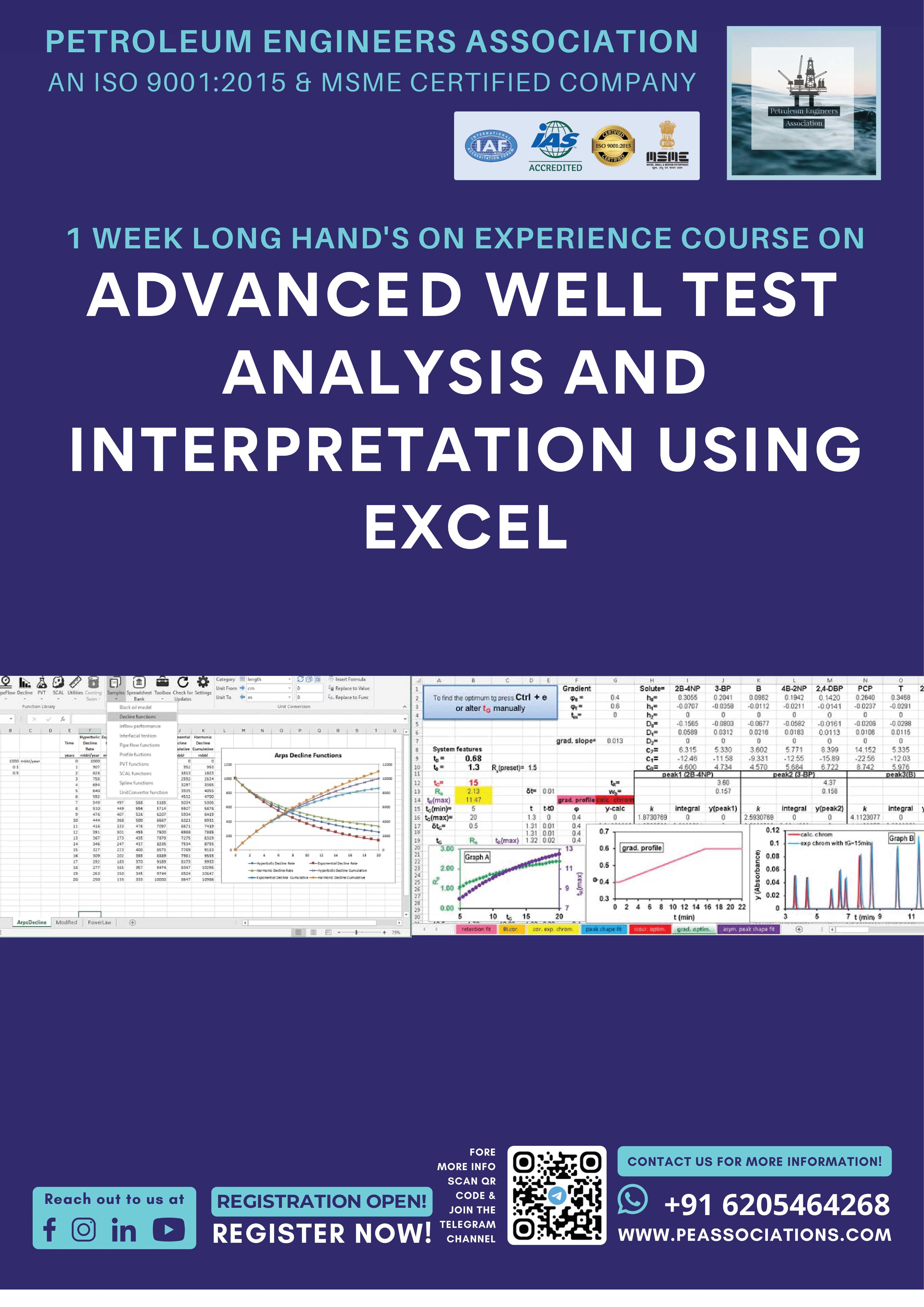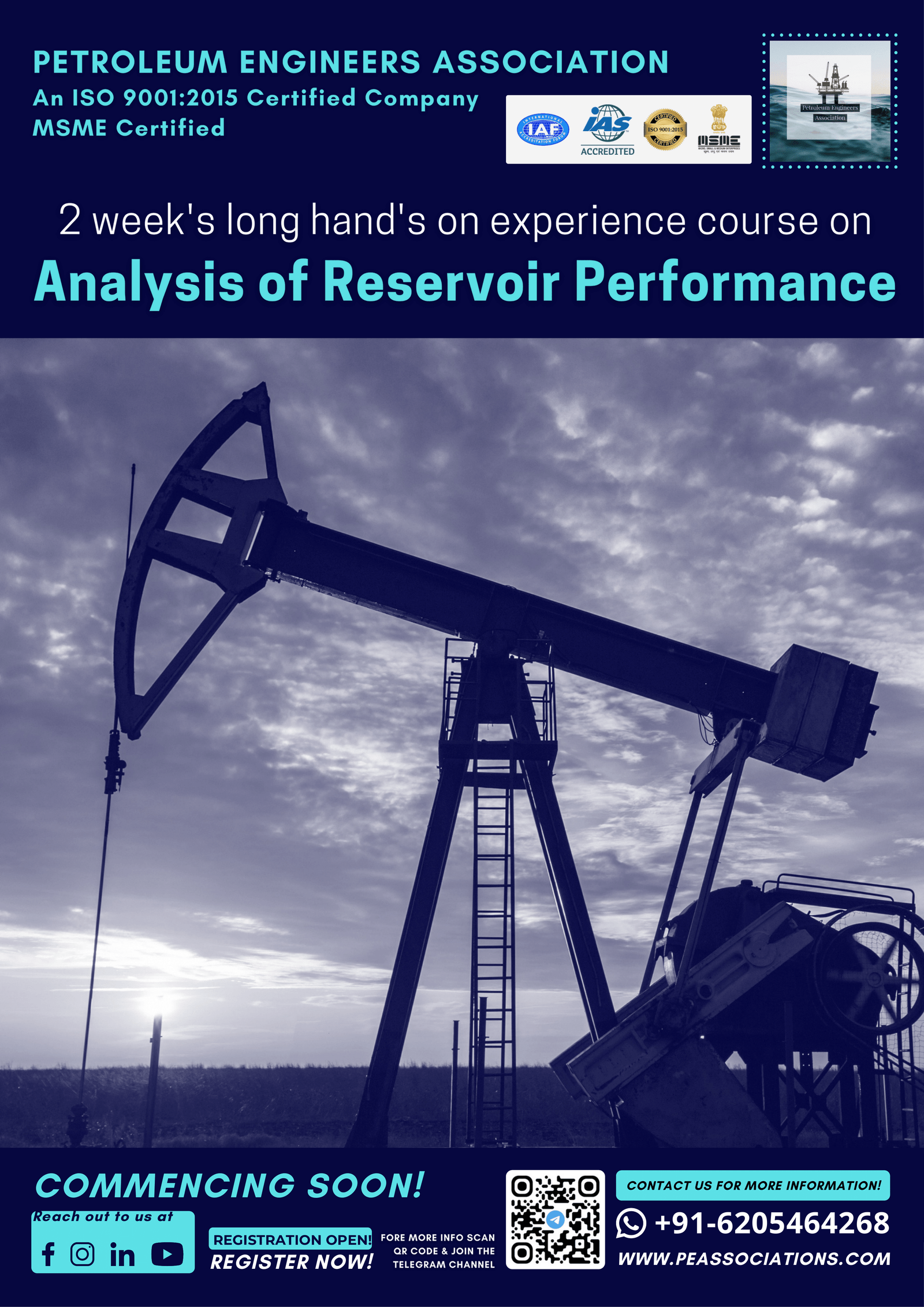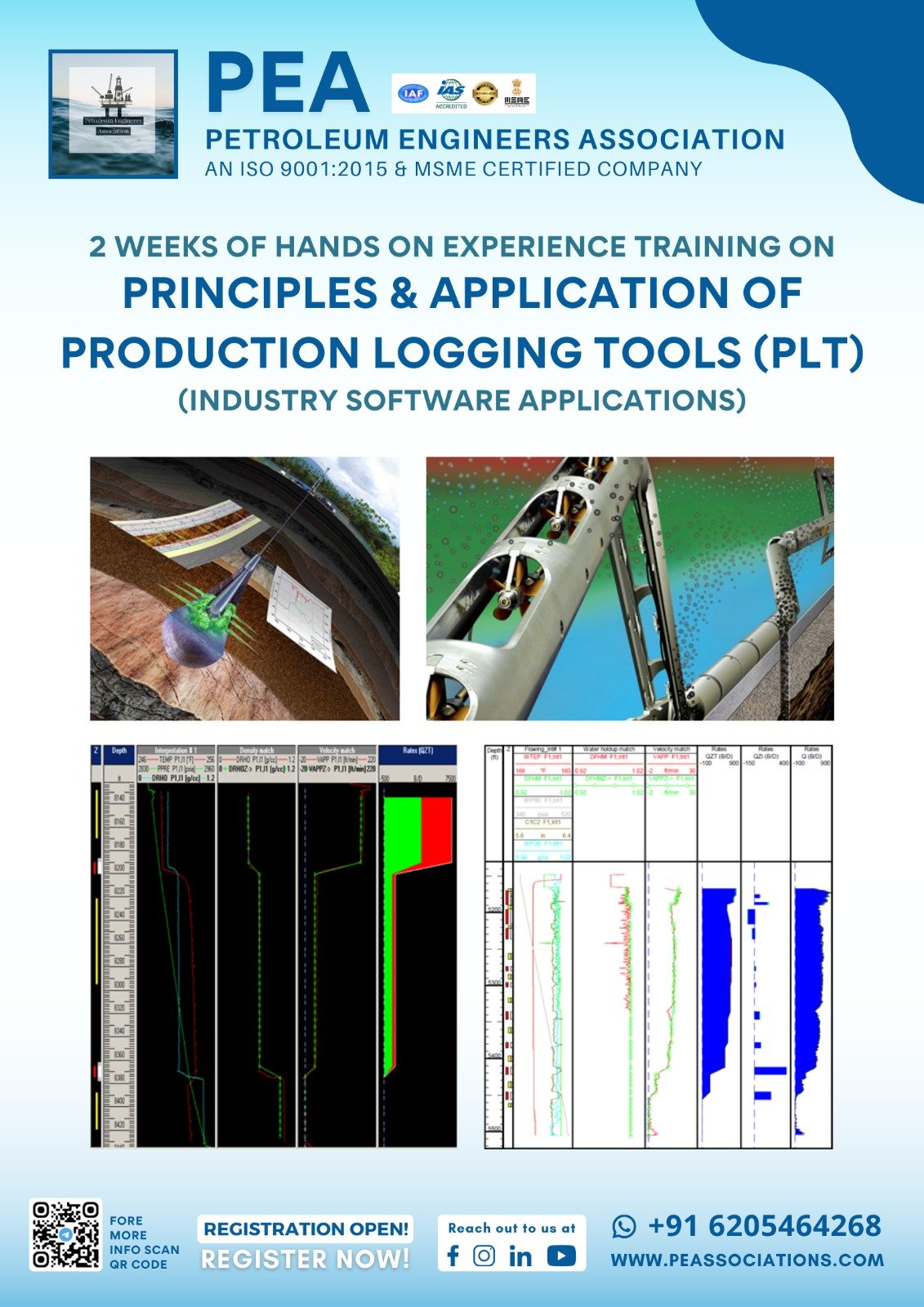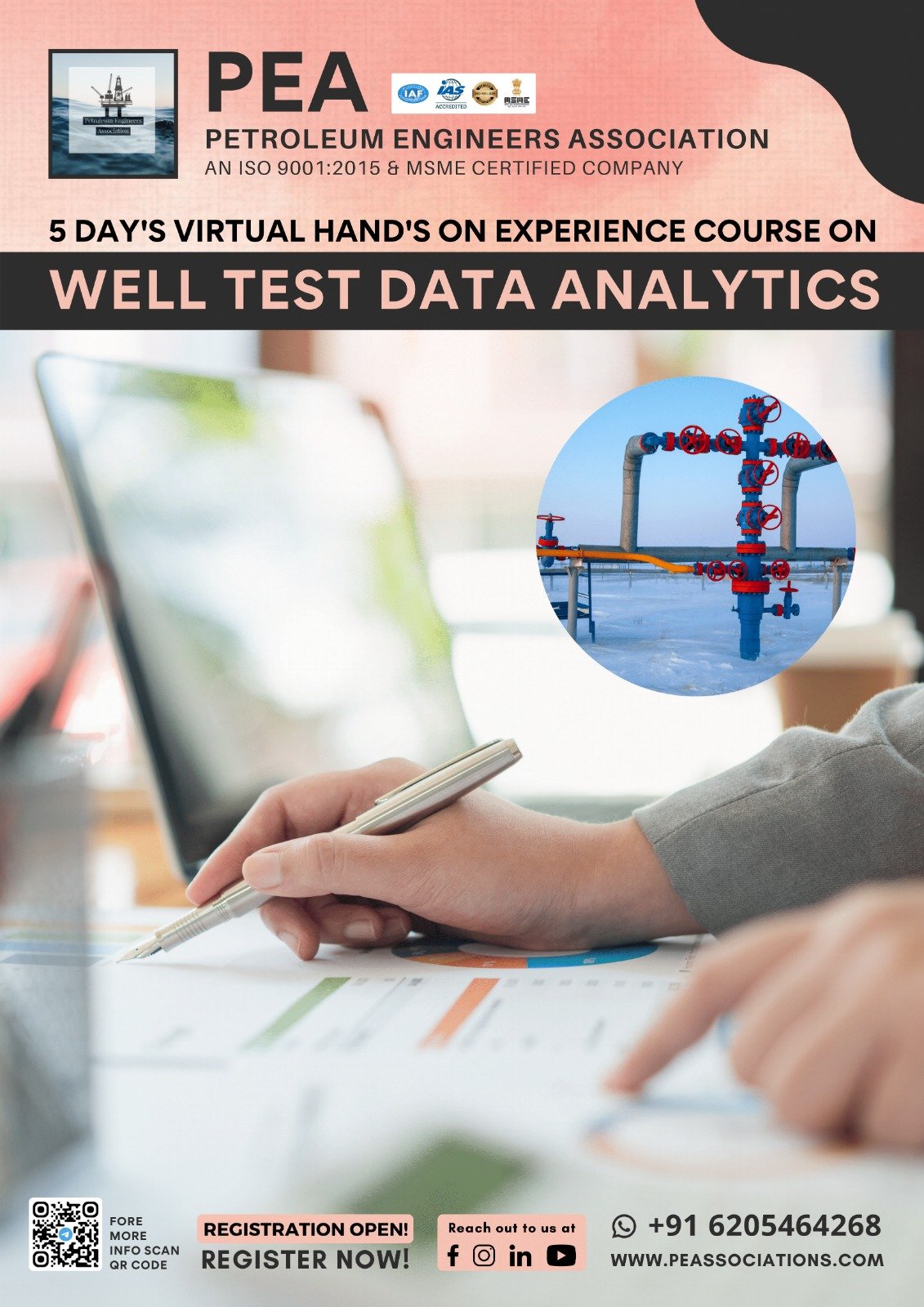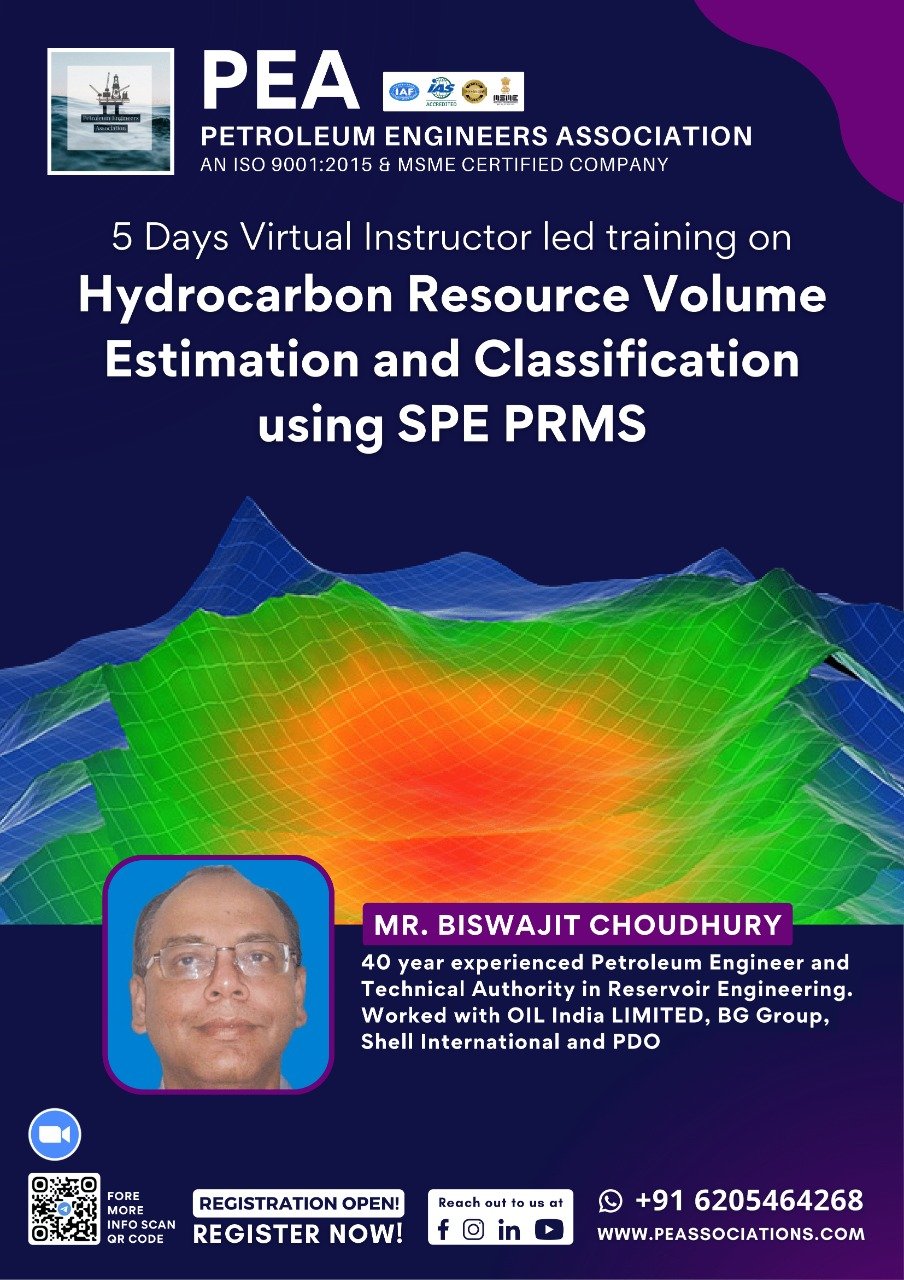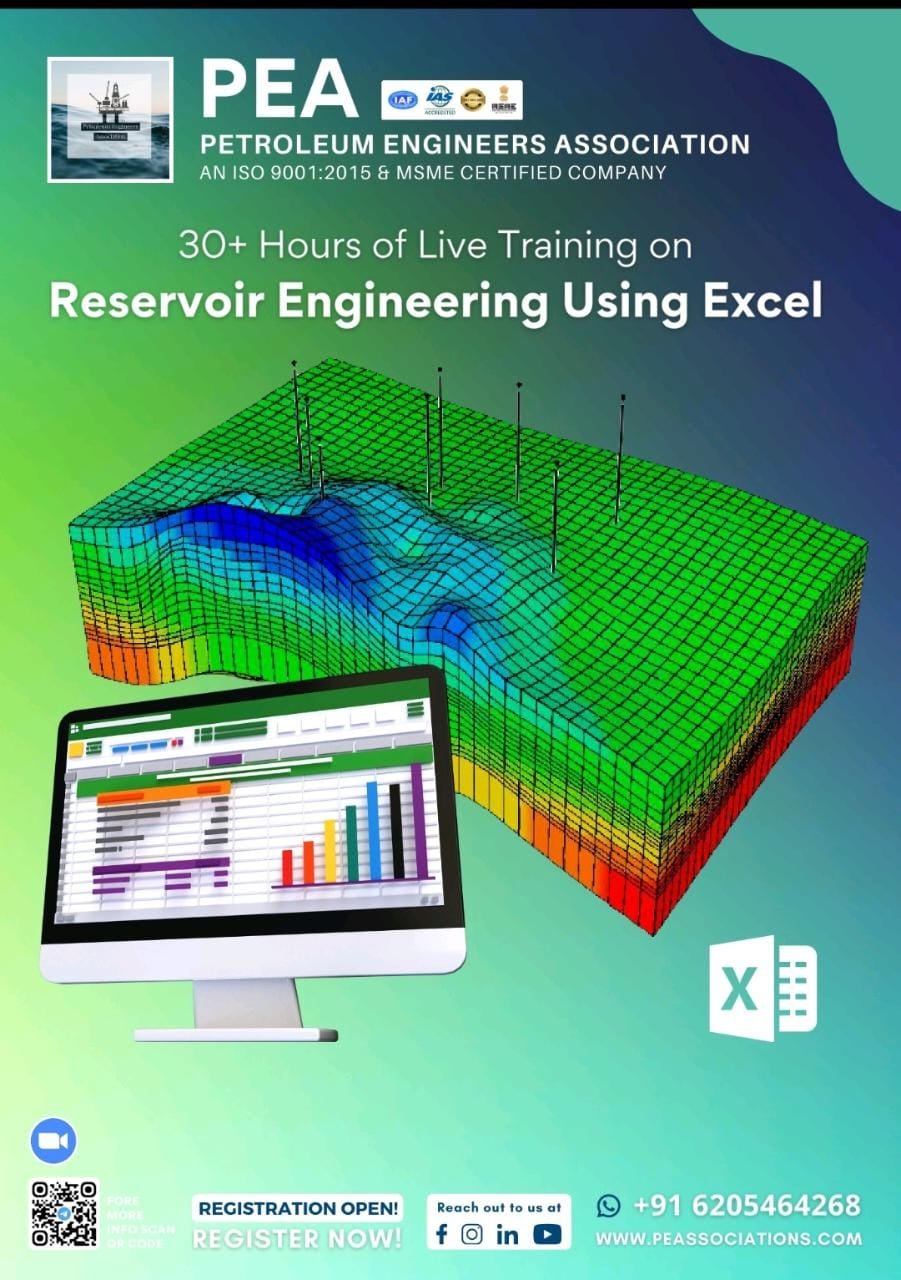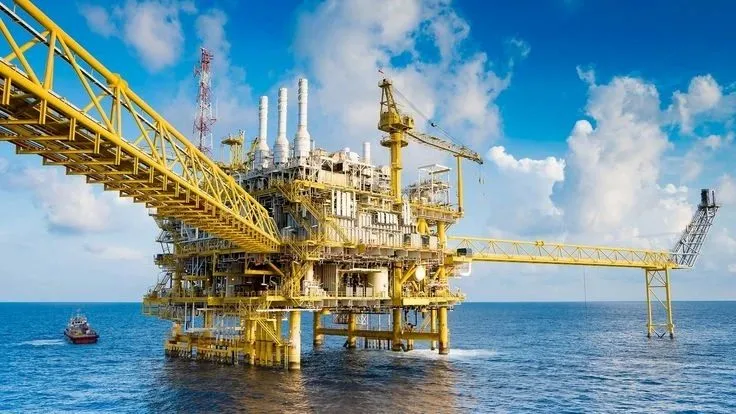| Code | Date | Time | Duration | Location | Currency | Team of 10 Per Person | Team of 7 Per Person | Early Bird Fee Per Person | Normal Fee Per Person |
|---|---|---|---|---|---|---|---|---|---|
| ARS25 | 15 - 28 Sep 2025 | 9:30 PM Indian Time |
3 Hours Per Day
|
Zoom Online
|
USD
|
1750
|
1850
|
2000
|
2500
|
The Classes Will be Online Via Zoom for 2 Weeks excluding Weekends.
Boost your team's skills and your budget! Enjoy group discounts for collaborative learning. Send an inquiry to info@peassociations.com.
Practical Reservoir Simulation
Learn the fundamentals of reservoir simulation, focusing on practical approaches and methodologies to optimize hydrocarbon recovery. This course equips engineers and technical professionals with essential tools and insights to build, validate, and analyze reservoir models effectively
Description
Learn advanced reservoir modeling & simulation. Master reservoir characterization, rock & fluid properties, PVT modeling, history matching, and uncertainty analysis. Build dynamic models, optimize strategies, estimate reserves, and plan field development with waterflooding & gas injection.
Reservoir simulation is a critical tool in managing and optimizing the production performance of oil and gas reservoirs. This course covers the fundamentals, offering participants a hands-on experience in developing, calibrating, and running simulations for practical applications. Through interactive sessions and case-based learning, participants will gain the skills to assess reservoir dynamics and make data-driven decisions.
Understand the principles and workflow of reservoir simulation.
Gain insights into model building, history matching, and production forecasting.
Learn to manage uncertainties and apply sensitivity analysis.
Enhance skills in utilizing simulation tools to optimize reservoir management.
Apply knowledge through hands-on exercises with industry-standard software.
This course combines lectures, hands-on exercises, and group discussions, enabling participants to apply theoretical concepts to real-world scenarios. Case studies will be presented, along with simulation practice, to reinforce learning and facilitate skill-building.
Improved technical decision-making in reservoir development and management.
Enhanced capability to optimize production and manage uncertainties.
Access to simulation best practices that support strategic planning and resource management.
Increased competency in reservoir simulation tools and methodologies.
Enhanced ability to assess and forecast reservoir performance.
Improved confidence in making data-informed decisions to optimize recovery.
This course is designed for reservoir engineers, petroleum engineers, geoscientists, and technical professionals involved in reservoir management, field development, and production optimization.
On successful completion of this training course, PEA Certificate will be awarded to the delegates
Your Expert trainer is a highly accomplished Reservoir Engineering Team Leader possessing over 14 years of experience in the energy sector. He has a proven track record of success in reservoir management, characterization, and production optimization.
Reservoir Engineering: Leading and mentoring teams, conducting comprehensive reservoir evaluations, and developing strategies to maximize hydrocarbon recovery.
Data Analysis and Interpretation: Analyzing production data, material balance, RFT/MDT data, and pressure transients to optimize reservoir performance and identify opportunities for enhanced recovery.
Software Proficiency: Utilizing industry-standard software such as Techlog, Volumetric, DCA, MBE, OFM, and KAPPA for reservoir simulation, analysis, and hydrocarbon estimation.
Training and Development: Designing and delivering training courses on key reservoir engineering topics, including waterflooding, PVT analysis, and reservoir simulation.
Trainer has deep understanding of reservoir engineering principles, coupled with his strong analytical and problem-solving skills, make him a valuable asset. He consistently delivers technical solutions that drive efficiency and improve the performance of E&P portfolios.

